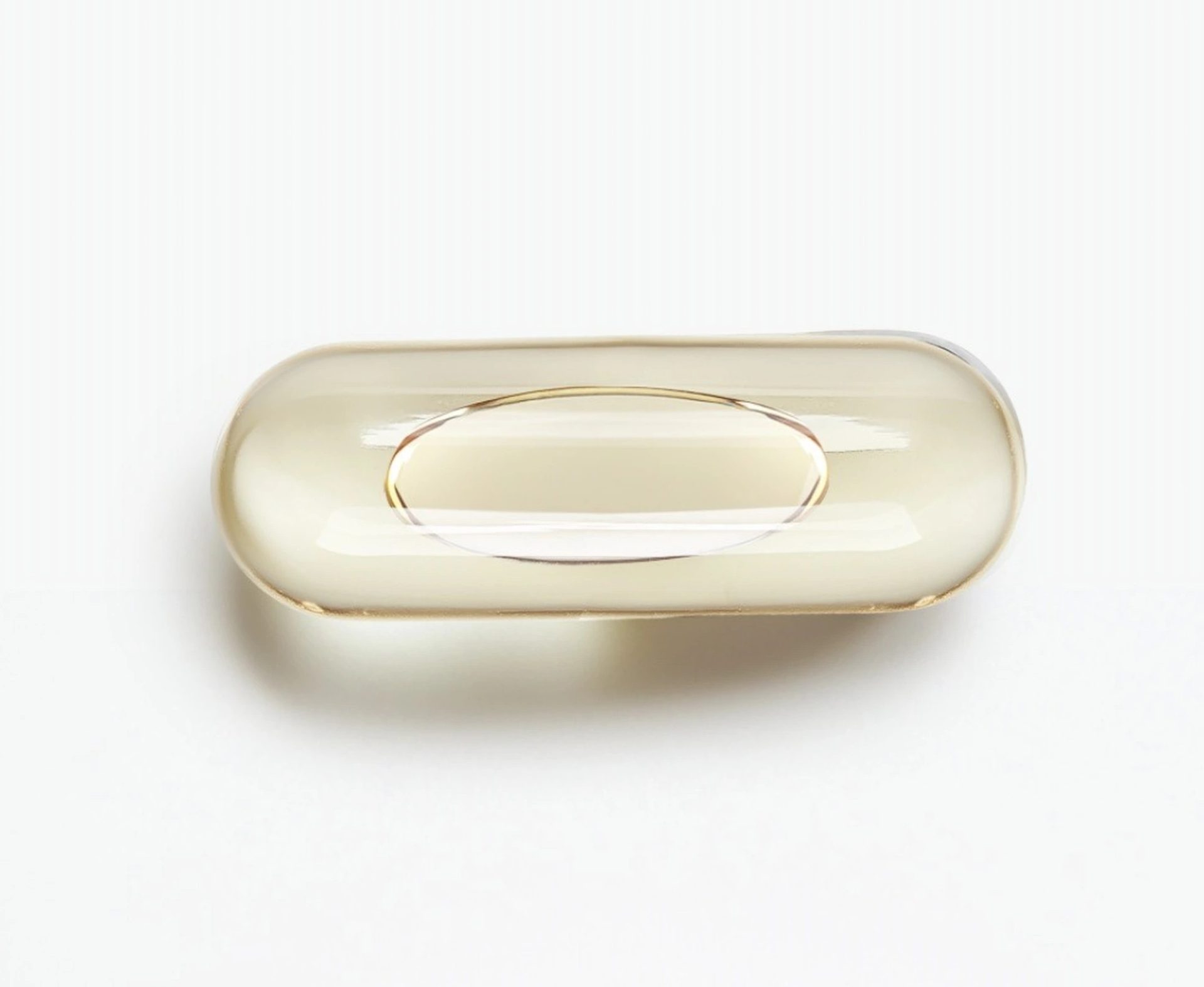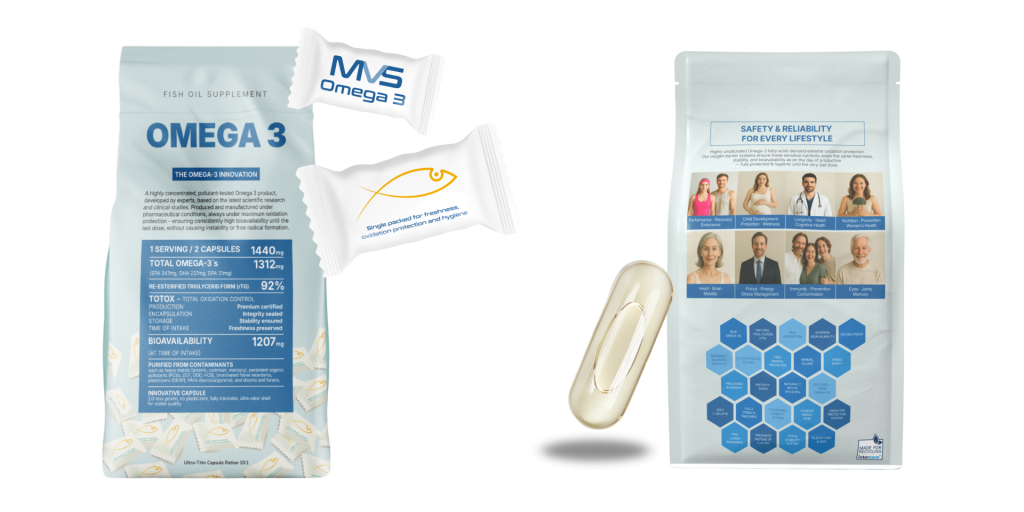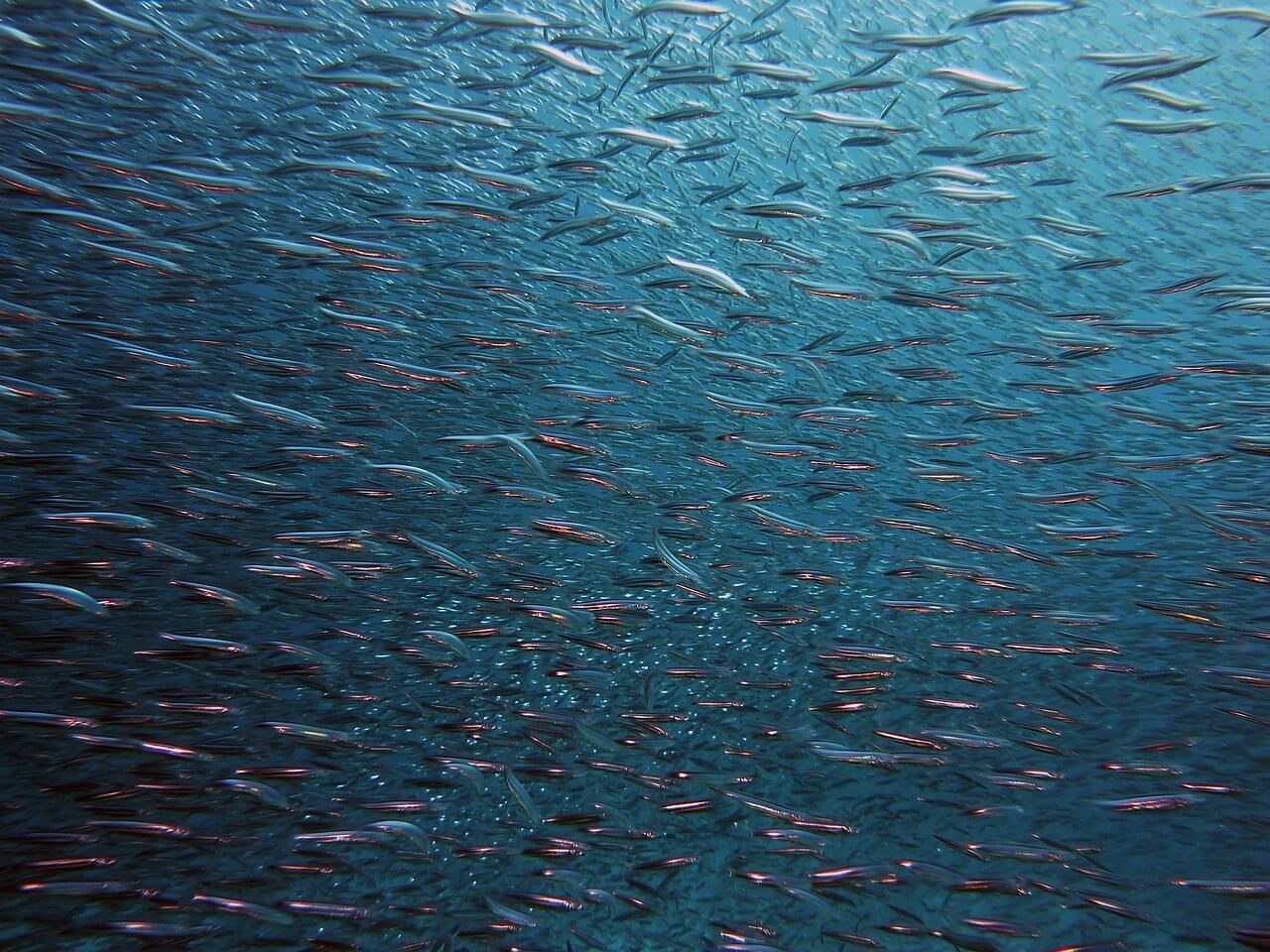Table of Contents
Why Sustainable Fish Oil Matters
Sustainable Omega-3 Supplements: Omega-3 fatty acids are vital for heart health, brain function, and reducing inflammation. But today’s consumers ask an important question: “Is my fish oil supplement harming the ocean?”
The truth: unsustainable fishing can lead to overfishing, biodiversity loss, and ecosystem damage. Without verified traceability, it’s impossible to know if your supplement supports ocean health—or harms it.
That’s why choosing fish oil from sustainably managed fisheries isn’t just a personal health decision. It’s an environmental responsibility.
Epax® Norway – Our Trusted Partner
At MVS Pharma, we source exclusively from Epax® Norway—a global leader in high-purity omega-3 concentrates and a pioneer in sustainable marine sourcing.
Certified Quality & Standards You Can Trust:
- Friend of the Sea (FoS): Certified since 2009, sourcing only from well-managed fisheries.
- MarinTrust: Guarantees best practices for marine ingredient sourcing and production.
- ISO 14001 (DNV): Environmental management certification, reducing ecological impact.
- Pharmaceutical Approvals: Ålesund facility approved by NoMA for APIs, inspected by the U.S. FDA.
- EU REACH Compliance: Protecting both human health and the environment.
EcoVision – Sustainability in Action
Epax’s EcoVision framework follows the FAO Code of Conduct for Responsible Fisheries, ensuring every step is ethical and eco-friendly.
- Sustainability: Only certified sustainable fisheries.
- Traceability: Full custody from ocean to capsule.
- Regulatory Excellence: Compliance with EU, U.S., and global standards.
- Continuous Improvement: Transparent ESG reporting with measurable results.
For MVS Omega-3, EcoVision ensures every capsule is not only effective but also ethically and environmentally responsible.
Proven ESG Results (2021–2023)
- Carbon Footprint: –13.3% (2022), –9% (2023).
- Renewable Energy: 95% hydroelectric (2023), target 100% by 2024.
- Water Savings: –65% potable water use for cooling, goal –80% by 2025.
- Circular Economy: 97% reuse of marine by-products (vs. global avg. 7.2%), target 98%.
How to Identify Eco-Friendly Omega-3 Supplements
When choosing fish oil, look for:
1. Third-party certifications (FoS, MarinTrust).
2. Traceability back to the fishery.
3. ISO 14001 compliance for environmental standards.
4. Pharmaceutical-grade oversight (FDA, EU, NoMA).
5. ESG reporting with measurable progress.
Summary – Health in Harmony with Nature
With MVS Omega-3, you’re investing in:
- premium purity and efficacy,
- full transparency and traceability,
- and sustainably sourced fish oil.
Every capsule is a step toward protecting our oceans—because true health must also be sustainable health.

MVS Omega-3 combines premium health benefits with full environmental responsibility. Sourced exclusively from Epax® Norway, it offers pharma-grade packaging standards, verified sustainability, and complete traceability. Certified by Friend of the Sea, MarinTrust, ISO 14001, and approved by global regulators, MVS Omega-3 ensures every capsule supports both personal well-being and ocean health. With measurable progress in reducing carbon footprint, renewable energy use, water savings, and circular economy practices, it represents a supplement where true health and sustainability meet.
Application to MVS Omega-3
At MVS Pharma GmbH, we integrate cutting-edge research into the formulation of our MVS Omega-3 supplement, ensuring superior bioavailability, oxidation protection, freshness of each capsule up until you take it, and purity.
1. Bioavailability Optimization
- Recent studies confirm that EPA reaches higher plasma levels faster than DHA, guiding our formulation strategy.
- Instead of ethyl esters, we use rTG form (re-esterified triglycerides), which has higher absorption rates. 92% Re-esterified Triglyceride (rTG) Form — structurally identical to natural fish oil for superior absorption (1207 mg bioavailable) and full physiological compatibility.
- Our marine-derived rTG oil contains 480 mg/g EPA and 320 mg/g DHA, ensuring an optimal balance.
- 90% Purified Omega-3 Concentration — delivering 1440 mg total oil with 1312 mg active Omega-3s (EPA 784 mg, DHA 518 mg) per serving.

2. Oxidation Stability
Omega-3 fatty acids are prone to oxidation, reducing efficacy and even becoming rancid. To combat this:
- We use IP-certified tocopherols as antioxidants.
- Our fish oil undergoes state-of-the-art stabilization techniques.
Oxidation markers:
- Total Oxidation (TOTOX) Value: Premium production certified + Encapsulation: Integrity sealed Storage: Stability ensured + Time of intake: Freshness preserved. Every stage, from production to consumption, is protected for maximum purity and quality.
3. Pollutant Removal
We ensure stringent purification standards by applying advanced molecular distillation, removing:
- Heavy metals (Arsenic, Cadmium, Lead, Mercury)
- PCBs and dioxins (compliant with TEQ WHO standards)
We source our Omega-3 from sustainable fisheries, guaranteeing the highest purity.
Scientific Validation
- Our Omega-3 capsules undergo independent laboratory testing, confirming high bioavailability, purity, and safety.
- Research-backed formulation integrates insights from the study “Plasma Levels of EPA and DHA after Ingestion of a Single Dose of EPA and DHA Ethyl Esters 2024”.
Conclusion
We, at MVS Pharma GmbH, make sure to refine our formulations. The rTG form of Omega-3 in our products ensures superior bioavailability compared to ethyl esters (EE).
By focusing on:
- Optimized bioavailability through rTG form
- Superior oxidation stability for enhanced shelf life
- Advanced purification to eliminate pollutants
We provide an industry-leading Omega-3 supplement that maximizes health benefits for our customers.
FAQs
Why should I choose sustainable fish oil?
Sustainable fish oil protects marine ecosystems while giving you the same premium health benefits. Choosing certified products ensures both personal and planetary health.
What makes MVS Omega-3 different?
We partner exclusively with Epax® Norway, guaranteeing traceability, pharma-grade packaging, and eco-friendly sourcing. MVS Omega-3 offers oxidation resistance, superior absorption in rTG form, full safety testing, and double protection packaging — ensuring purity and potency from production to consumption.
How does MVS Omega-3 support the environment?
Every capsule comes from fisheries certified by Friend of the Sea, with reduced carbon emissions, renewable energy, and circular economy practices.
What is the most sustainable source of omega-3?
The most sustainable omega-3 sources are certified fisheries and traceable marine ingredients, like Epax® Norway fish oil, harvested from non-overfished stocks. For plant-based options, algae oil is also a highly sustainable alternative.
Is there a downside to taking omega-3 supplements?
Omega-3 supplements are safe for most people, but high doses may cause mild digestive upset or blood thinning. Choosing purified, pharmaceutical-grade omega-3 reduces risks while ensuring maximum safety and effectiveness.


